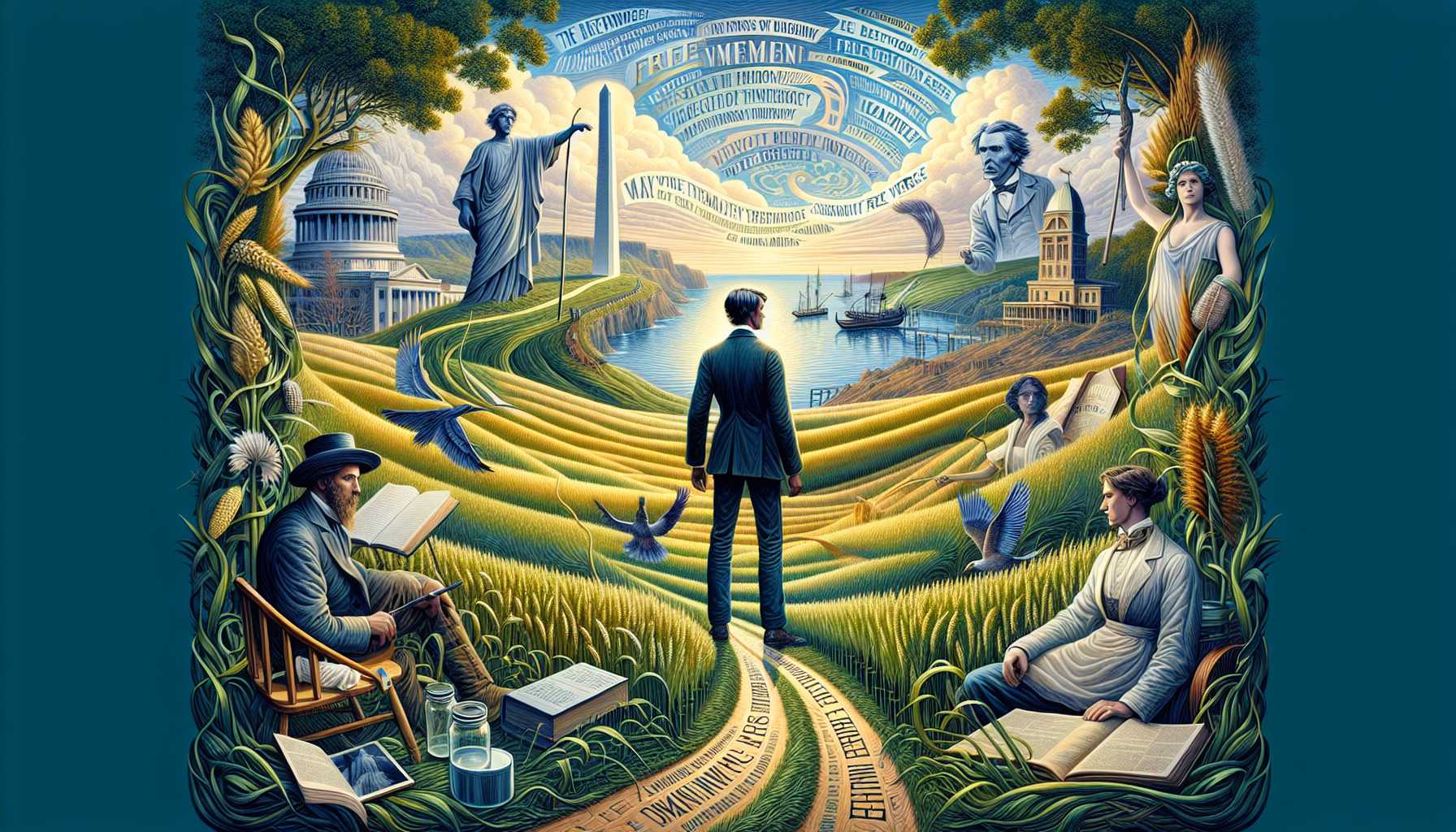
Walt Whitman: A Pioneer of American Poetry and Individuality
Walt Whitman (1819-1892) is a pivotal figure in American poetry, best known for his innovative style and themes that celebrate individuality and the human experience.
Wōruto Hoittoman (1819-1892) wa, Amerika no shi ni okeru jūyōna jinbutsu de ari, kosei to ningen no keiken o shōsan suru kakushinteki na sutairu to tēma de motto mo yoku shirareteimasu.
ウォルト・ホイットマン(1819-1892)は、アメリカの詩における重要な人物であり、個性と人間の経験を称賛する革新的なスタイルとテーマで最もよく知られています。
His seminal work, 'Leaves of Grass,' revolutionized the form of poetry by embracing free verse and incorporating a wide range of subjects, from personal introspection to the celebration of the American landscape and democracy.
Kare no jūyōna sakuhin 'Kusa no Ha' wa, jiyū shi o toriire, kojin no naisei kara Amerika no fūkei to minshushugi no shōsan made no habahiroi tēma o toriireru koto ni yotte, shi no katachi o kakumeiteki ni kaemashita.
彼の重要な作品「草の葉」は、自由詩を取り入れ、個人の内省からアメリカの風景と民主主義の称賛までの幅広いテーマを取り入れることによって、詩の形を革命的に変えました。
Whitman's poetry often reflects his belief in the interconnectedness of all people and his deep reverence for nature.
Hoittoman no shi wa, subete no hitobito no sōgo setsuzoku to shizen e no fukai keii o han'ei suru koto ga ōi desu.
ホイットマンの詩は、すべての人々の相互接続と自然への深い敬意を反映することが多いです。
Throughout his life, Whitman worked as a teacher, journalist, and nurse, experiences that shaped his views and writings.
Kare no shōgai o tsūjite, Hoittoman wa kyōshi, jānarisuto, kangoshi to shite hataraki, kare no kenkai ya chosaku ni eikyō o ataeru keiken o tsumimashita.
彼の生涯を通じて、ホイットマンは教師、ジャーナリスト、看護師として働き、彼の見解や著作に影響を与える経験を積みました。
His poetry contains a distinct voice that embodies the spirit of America, reflecting the country's diversity and complexities.
Kare no shi ni wa Amerika no seishin o taigen suru dokutoku no koe ga ari, kuni no tayōsei to fukuzatsusa o han'ei shiteimasu.
彼の詩にはアメリカの精神を体現する独特の声があり、国の多様性と複雑さを反映しています。
He celebrated the physical body, labor, and the common man, often advocating for social and political reform, which resonated during a time of national turmoil, including the Civil War.
Kare wa nikutai, rōdō, soshite ippanjin o shōsan shi, shibashiba shakaiteki oyobi seijiteki kaikaku o shiji shimashita ga, sore wa Nanboku sensō o fukumu kokka no konran no jidai ni kyōmei shimashita.
彼は肉体、労働、そして一般人を称賛し、しばしば社会的および政治的改革を支持しましたが、それは南北戦争を含む国家の混乱の時代に共鳴しました。
Whitman's legacy endures as he continues to influence poets and writers around the world.
Hoittoman no isan wa tsuzuki, kare wa sekaijū no shijin ya sakka ni eikyō o ataetsuzuketeimasu.
ホイットマンの遺産は続き、彼は世界中の詩人や作家に影響を与え続けています。
His works remain a fundamental part of American literature, and he is revered for his contributions to the development of modern poetry.
Kare no sakuhin wa Amerika bungaku no kihonteki na bubun to shite nokotte ori, gendai shi no hatten e no kōken ni taishite sonkei sareteimasu.
彼の作品はアメリカ文学の基本的な部分として残っており、現代詩の発展への貢献に対して尊敬されています。
His fearless exploration of self and society invites readers to engage with their own identities and the world around them.
Jiko to shakai no osore o shiranai tankyū wa, dokusha ni karera jishin no aidentiti ya shūi no sekai ni kan'yō suru koto o unagashimasu.
自己と社会の恐れを知らない探求は、読者に彼ら自身のアイデンティティや周囲の世界に関与することを促します。
Based on this article
